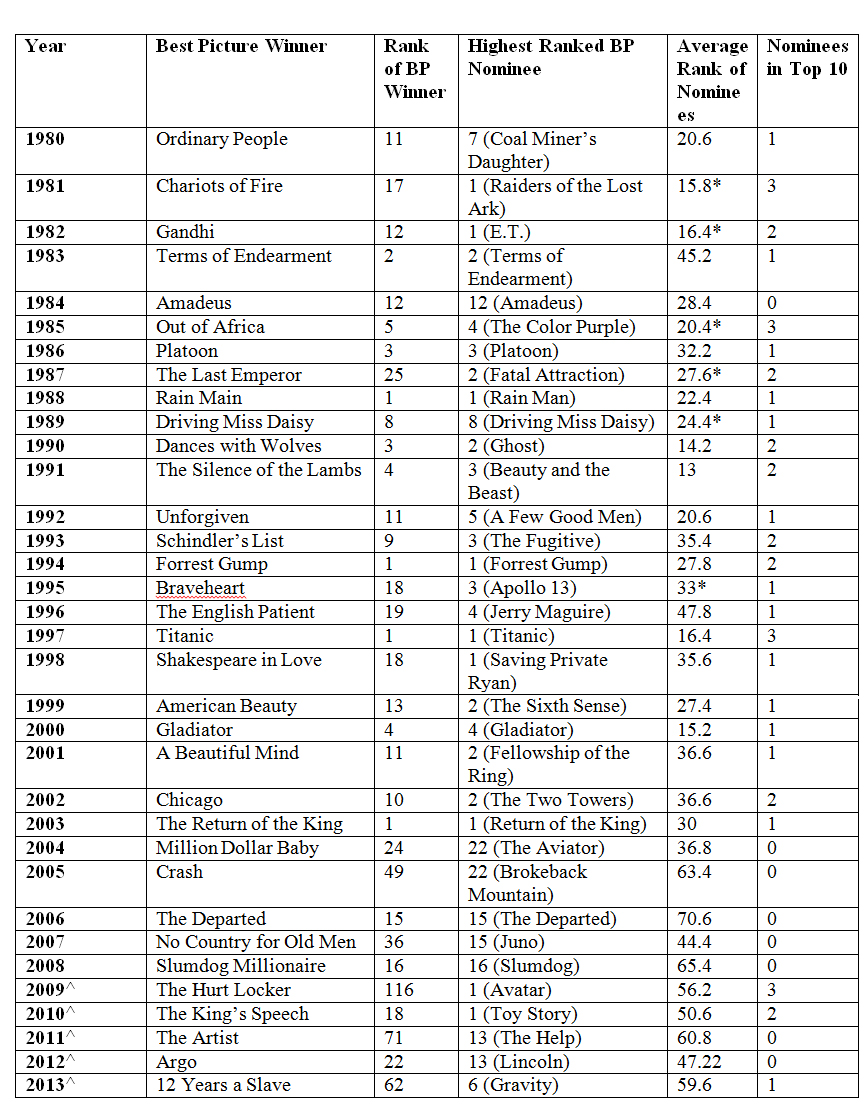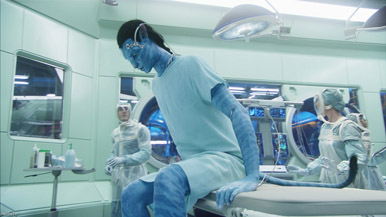|
|
They Shoot Oscar Prognosticators, Don’t They?Box Office and the Oscars: Does The Public Matter?By J. Don BirnamFebruary 4, 2015
This isn’t an exact scientific study, and many measures can be used to prove (and maybe disprove?) the point. Today, I’m going to focus on a small set of (arbitrarily selected) numbers, to see what results yield. I will look at yearly box office rank of the Best Picture winner, the average rank of the nominees, and the number of nominees that cracked the top ten highest grossing movies of the year. The analysis is hindered a bit by the fact that most box office data is incomplete before 1980, and it was really in the 1970s when film historians say there was a very close correlation between Oscar and box office. Thus, the change in the correlation, if any is discovered, may seem smaller when we move only from the 1980s until today. Nevertheless, here is what I found.  *In these years, if the odd-ball nominee that ranked below the top 50 is removed, the average ranking movies up to 5.4, 6.5, 15.6, 12.5, 13.5, and 22 respectively. ^In these years, the expanded Best Picture list meant more chances to get movies in the top 10—but it didn't seem to do much for a while. These numbers don’t lie, friends. Here are some averages.  So the trends should be obvious. In the 1980s and even the 1990s, the Best Picture winner could be, on average, expected to be among the top 10. And the Best Picture nominees were altogether even among the top 25 or 30, even when accounting for nominees that skew the numbers way down - of which there was inevitably one or two every year. Essentially, the public and the Academy had similar tastes, except for one artsy movie here or there.
|

|
|
|

|
Thursday, October 31, 2024
© 2024 Box Office Prophets, a division of One Of Us, Inc.


